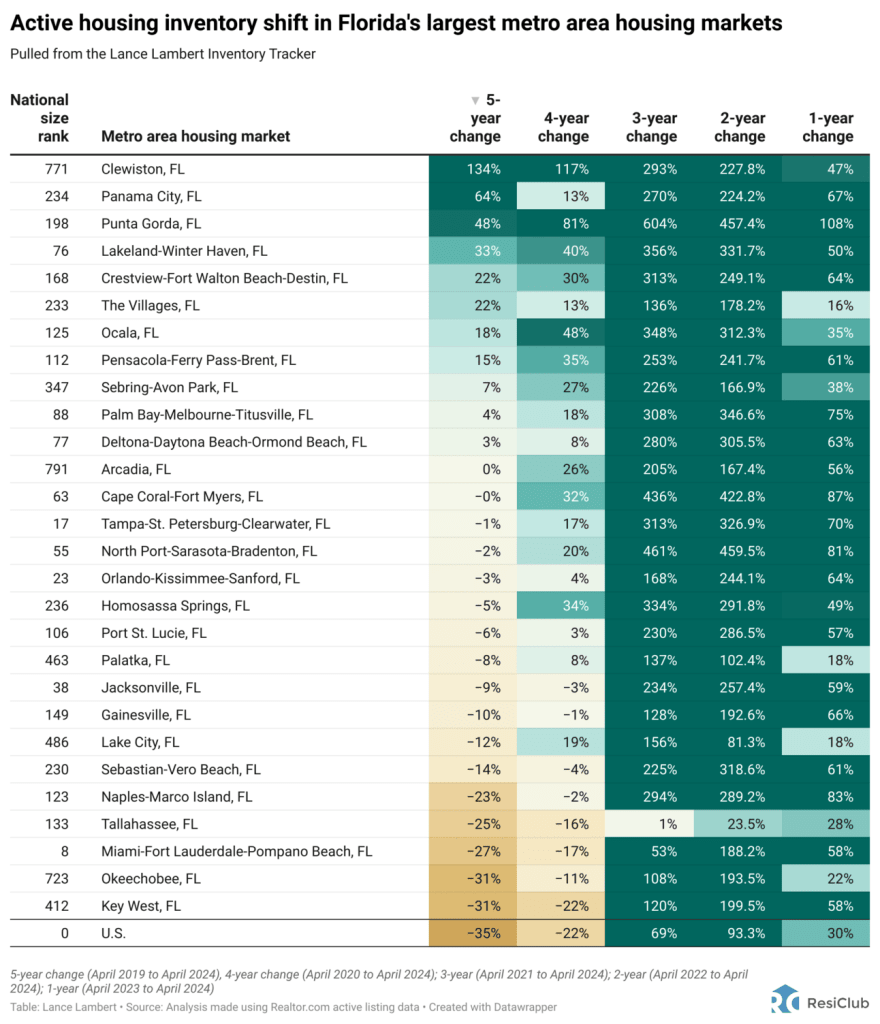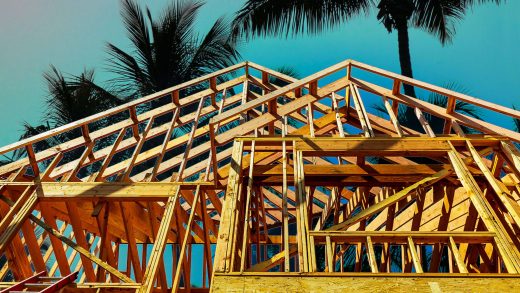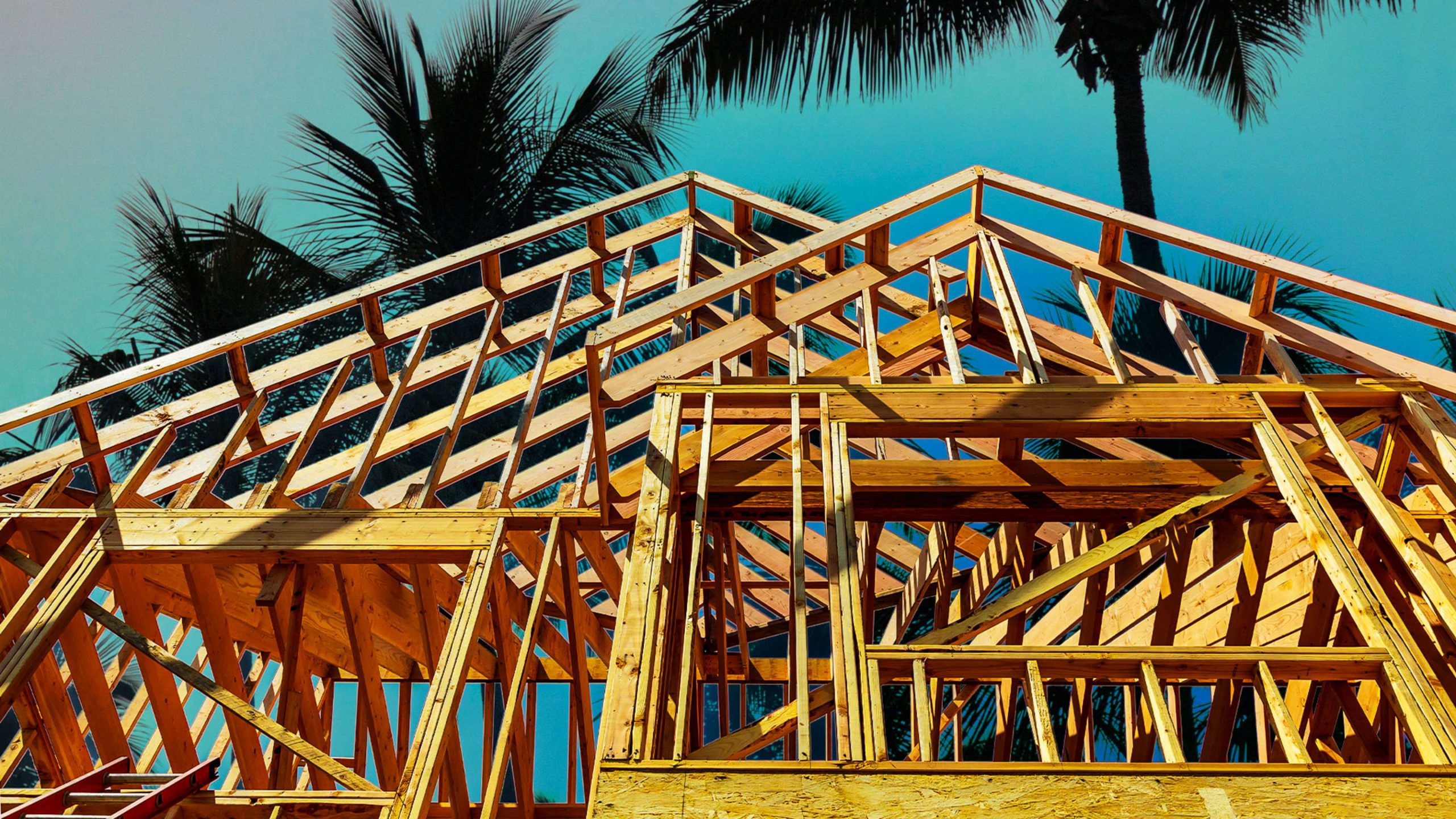Housing inventory is growing fast in Florida. Here’s why builders say they aren’t worried
Housing inventory is growing fast in Florida. Here’s why builders say they aren’t worried yet
Most Florida builders think growing housing inventory will impact sales but they “haven’t seen a dramatic downshift yet,” says Zonda housing economist Ali Wolf.
Want more stories from Lance Lambert’s ResiClub in your inbox? Subscribe to the free, daily ResiClub newsletter.
During a recent Q&A with ResiClub, housing economist Ali Wolf said that despite spiking levels of active housing inventory for sale in Florida, single-family builders in Florida are still doing alright.
“The rise in [housing] inventory in Florida has definitely caused rumblings in the new home industry,” said Wolf, who is chief economist at Zonda, an analytics firm specializing in new construction. “We’ve had builders reach out to compare notes with what other builders are saying. The interesting caveat is that most builders think this will impact sales but haven’t seen a dramatic downshift yet.”
D.R. Horton CEO Paul Romanowski echoed a similar message when asked about Florida during the homebuilder’s most recent earnings call. “Florida still feels good to us,” said Romanowski. “There certainly has been a lot of news tied to the rise in insurance rates and for most of where we sell our homes are off the coast, and building new construction allows for some stability in those insurance rates,” he noted. “So [we] haven’t seen a significant increase for the homes in the communities where we sell as you may see reported along the coastal and high wind zones. Still seeing good migration and good job growth throughout the Florida market. So we feel pretty good about the Florida market and especially about our positioning at the more affordable price points across the Florida Peninsula.”
Part of the reason Florida single-family builders have fared better, Wolf tells ResiClub, is because it’s Florida existing homes and condos—rather than new construction—that are feeling the biggest impact from increased home insurance rates, property damage from Hurricane Ian in September 2022, and changes to the state’s condo market.
“If someone is looking to buy in Southeast [or Southwest Florida], they will find that new homes come with a much lower home insurance bill than buying existing ones,” Wolf tells ResiClub. “In addition, some of the increase in supply comes back to the new laws related to existing condo structures and the fear of getting hit with a large bill to upgrade the building.”

Indeed, some of the ongoing weakening in Florida’s existing/resale housing market can be attributed to Florida’s new structural safety law following the collapse of a Surfside, Florida condo building in June 2021, which resulted in 98 deaths.
According to reporting published in May by the Wall Street Journal, many Florida condos are experiencing special assessments exceeding $100,000:
“While the sharp rise in Florida home insurance costs is driving some to sell, most of the units on the market are in buildings 30 years or older. Under the new law, buildings must pass milestone structural inspections no later than 30 years after they are built,” the Wall Street Journal wrote in May.
Will softening in Florida’s resale market, particularly in the condo market along the Southeast and Southwest coastlines, lead to weakening in Florida’s new construction market?
The new construction in Florida’s condo market appears more vulnerable than the single-family new construction market in ResiClub’s view. Furthermore, Florida markets that have surpassed 2019 housing inventory levels by a significant margin are more susceptible than those that remain well below pre-pandemic inventory levels, but it’s something to keep an eye on.
ABOUT THE AUTHOR
(11)



